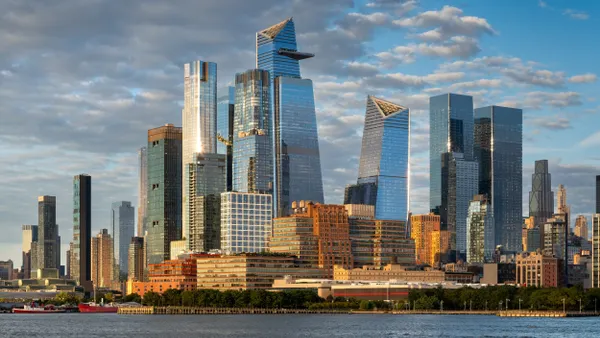When it comes to coronavirus' potential financial impact, one thing is clear: retail has a lot to lose.
Supply chain disruptions are multiplying quickly, as factories go dark and manufacturing comes to a halt within China. Just last week, the virus spread to Seattle, Washington, where Amazon and REI are headquartered. Soon after, an Amazon employee was diagnosed with COVID-19 and REI closed three Seattle-area campuses after two employees reported possible exposure, Retail Dive reported.
This global challenge is especially bad news for the retail industry, which already had been on shaky ground the past several quarters.
Last year, 17 major retailers filed for bankruptcy; so far in 2020, two big names have done the same: Pier 1 Imports and SFP Franchise Corp., parent company of Papyrus. Yet despite mounting odds, mega-retailer Target is having some of its best days yet. How is the eighth-largest retailer in the U.S., headquartered in Minneapolis, Minn., weathering the storm?
"As of today, we haven’t seen a large impact on our business or outlook," Target CFO Michael Fiddelke told analysts last week. According to The Wall Street Journal, Fiddelke said Target had yet to see anything that set 2020 results apart from its longer-term trends.
Strategy for success
In the past three years, Target has been embarking on a near-$10 billion project to remodel and upgrade its stores around the country. This strategic revamp plan, unveiled at a February 2017 investors meeting, has been largely successful, but the retailer weathered a sharp dip in holiday sales, and supply chain concerns about coronavirus are top of mind.
On March 3, executives reconvened to touch base on the plan, but due to coronavirus concerns, it was via video call from Minneapolis. And while Target will slightly decrease its capital expenditures, as executives slow the project’s pace, the company will continue to invest in technology, supply chain and new stores, Fiddelke told The Minneapolis Star Tribune.
Shortly after Fiddleke assumed the CFO role, Target roundly exceeded expectations, with its stock soaring 14% to a record high. Target’s shares nearly doubled from January to December 2019, The Star Tribune wrote, but 2020 is looking less rosy.
Shares tumbled in January following underwhelming holiday sales, and last week, Target stock dropped another 10% as coronavirus sparked a global selloff, Star Tribune said.
But Fiddleke retains "a ton of confidence" in the chain’s strategy, he said.
"2019 was a banner year, [and] I think we have a ton of runway to accelerate against that strategy in the years going forward," Fiddleke said.
Big retailers' golden opportunity
Fiddelke’s confidence may well be warranted. Retailers and grocers such as Target, Costco and Walmart are experiencing a boom in sales, as customers rush to stockpile vital items like toilet paper and canned goods. In the event of self-quarantines, many of the same customers are likely to use the companies' home delivery services, like Target’s Shipt, which could drive sales in its own right.
As a way of avoiding the need to reduce its projections, Target said the potential coronavirus impact was factored into its forecasts, WSJ reported.
CEO Brian Cornell said Target, over the last month, had assembled a team "that is literally meeting daily to monitor [product orders], to understand the state of production in China, to understand the rate of workers returning to work" and other factors, according to WSJ.
The downside
Even so, the virus could have "multiple, and countervailing, effects" on giants like Target, Retail Dive reported last week, pointing out Target sources 30% of its inventory from China.
Cornell also said the company is monitoring the situation "hour by hour," and noted that, "certainly from a merchandising standpoint, [...] we're going to see some periodic delays." To adjust, he said Target will make changes in its "assortment and promotional and presentation plans," according to Retail Dive.













